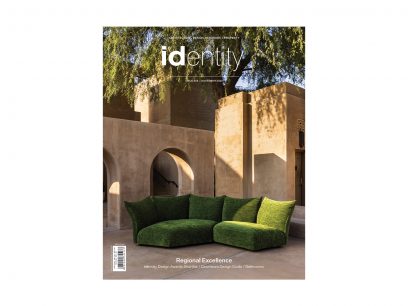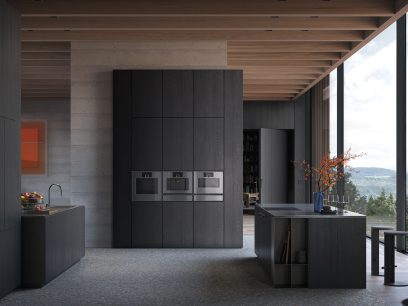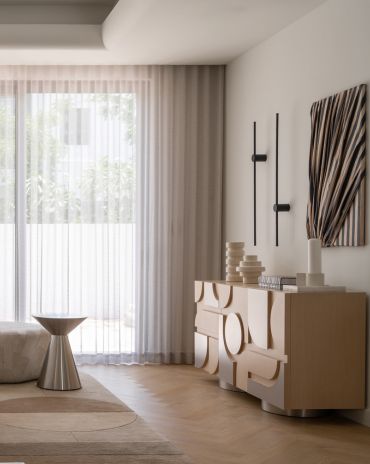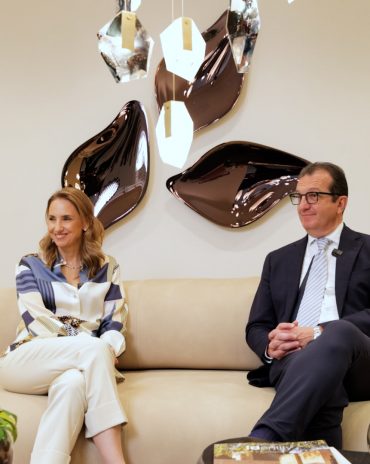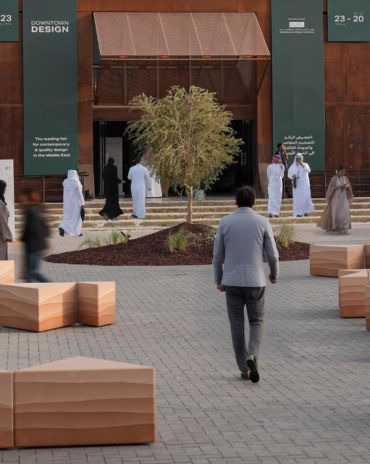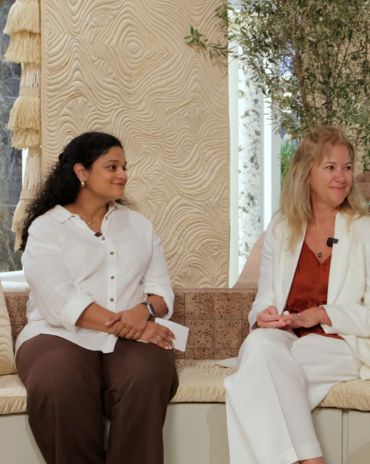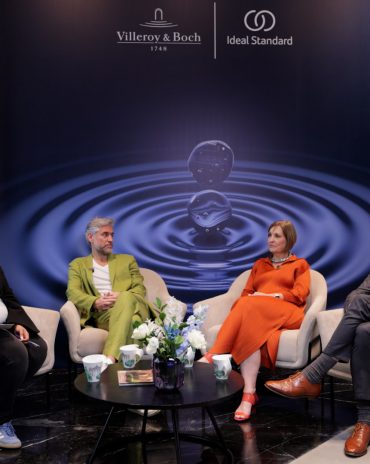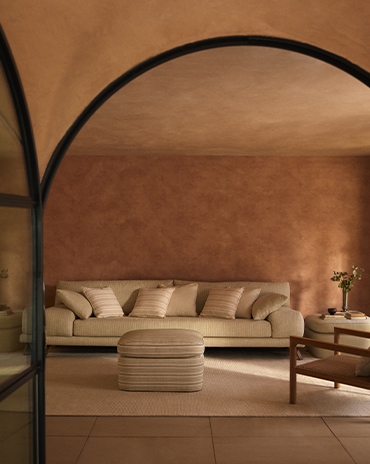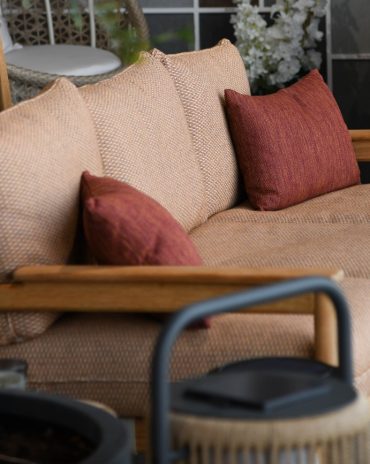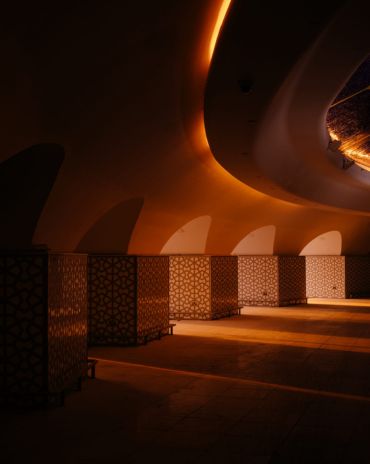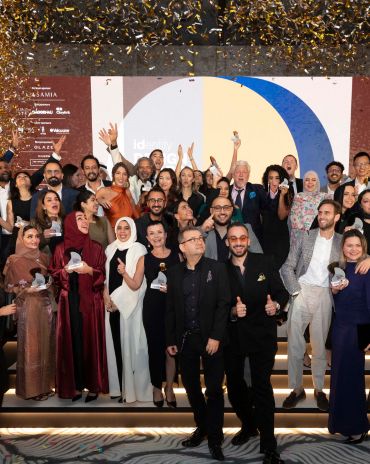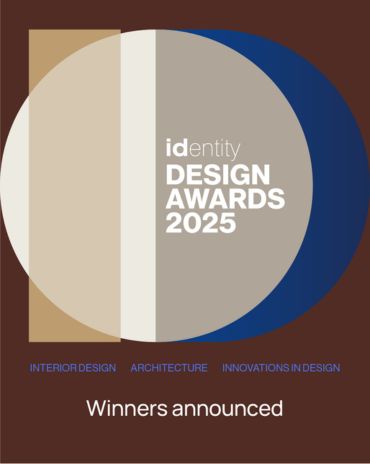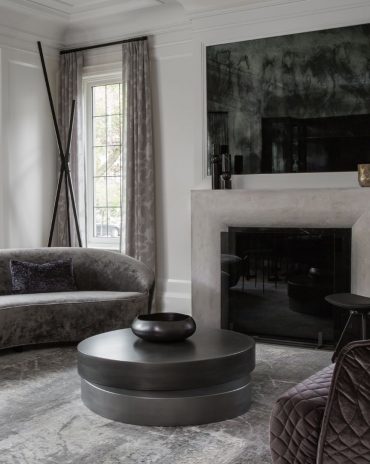Copyright © 2025 Motivate Media Group. All rights reserved.
(Un)common Threads is a textile art show that interweaves narratives of design, craft and materiality
The exhibition explored narratives outside the Western cannon of design
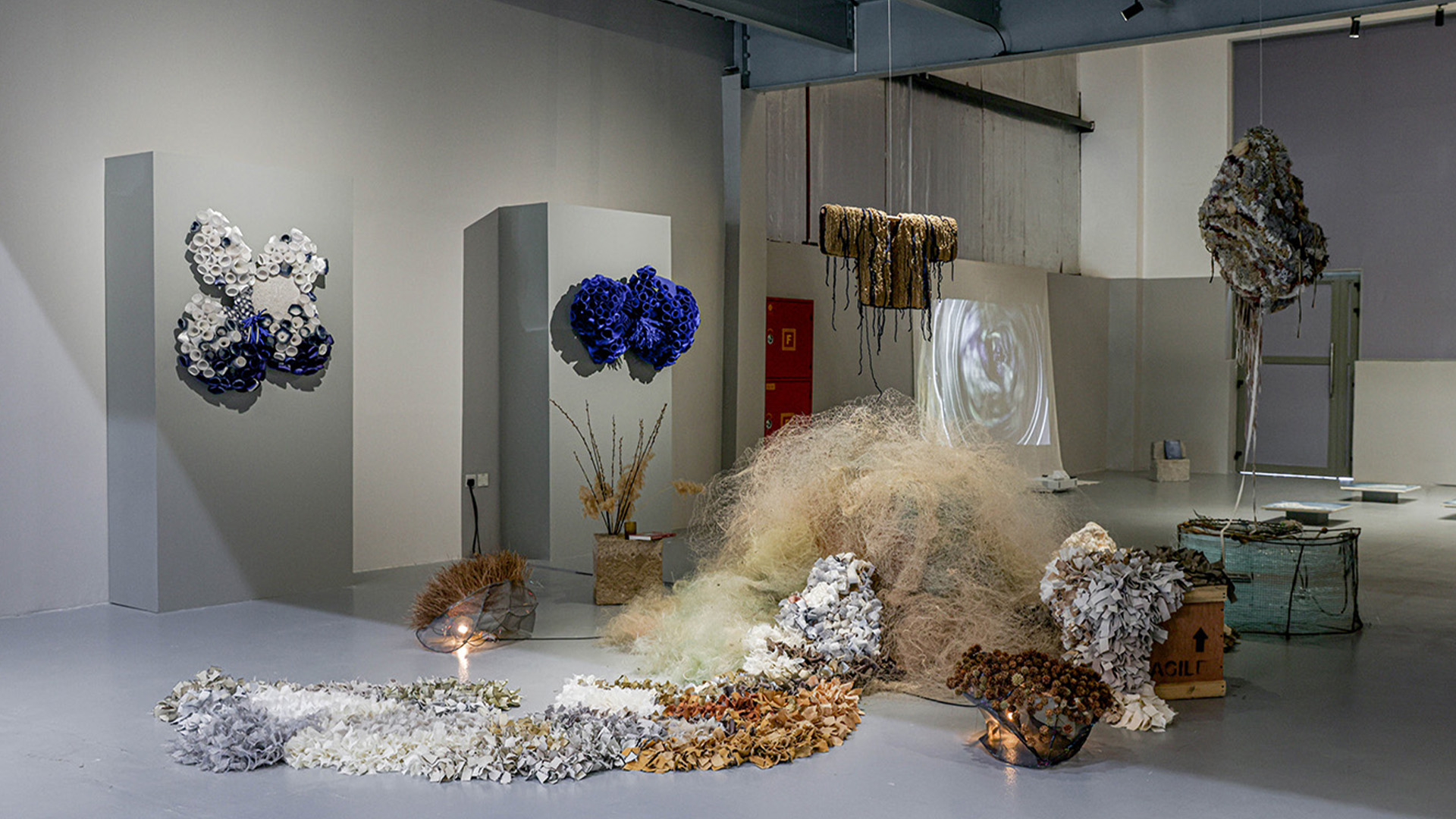
Lagos-born Bubu Ogisi is a fibre artist and creative director of contemporary womenswear brand IAMISIGO. She creates ‘wearable art pieces’ using traditional materials and ancient textile techniques from the African continent, seeking to de-colonise the Eurocentric constructs of creative expression. Her tactile forms feature exaggerated textures and structures that aim “to break and transform the rules and expectations of what textiles are.”
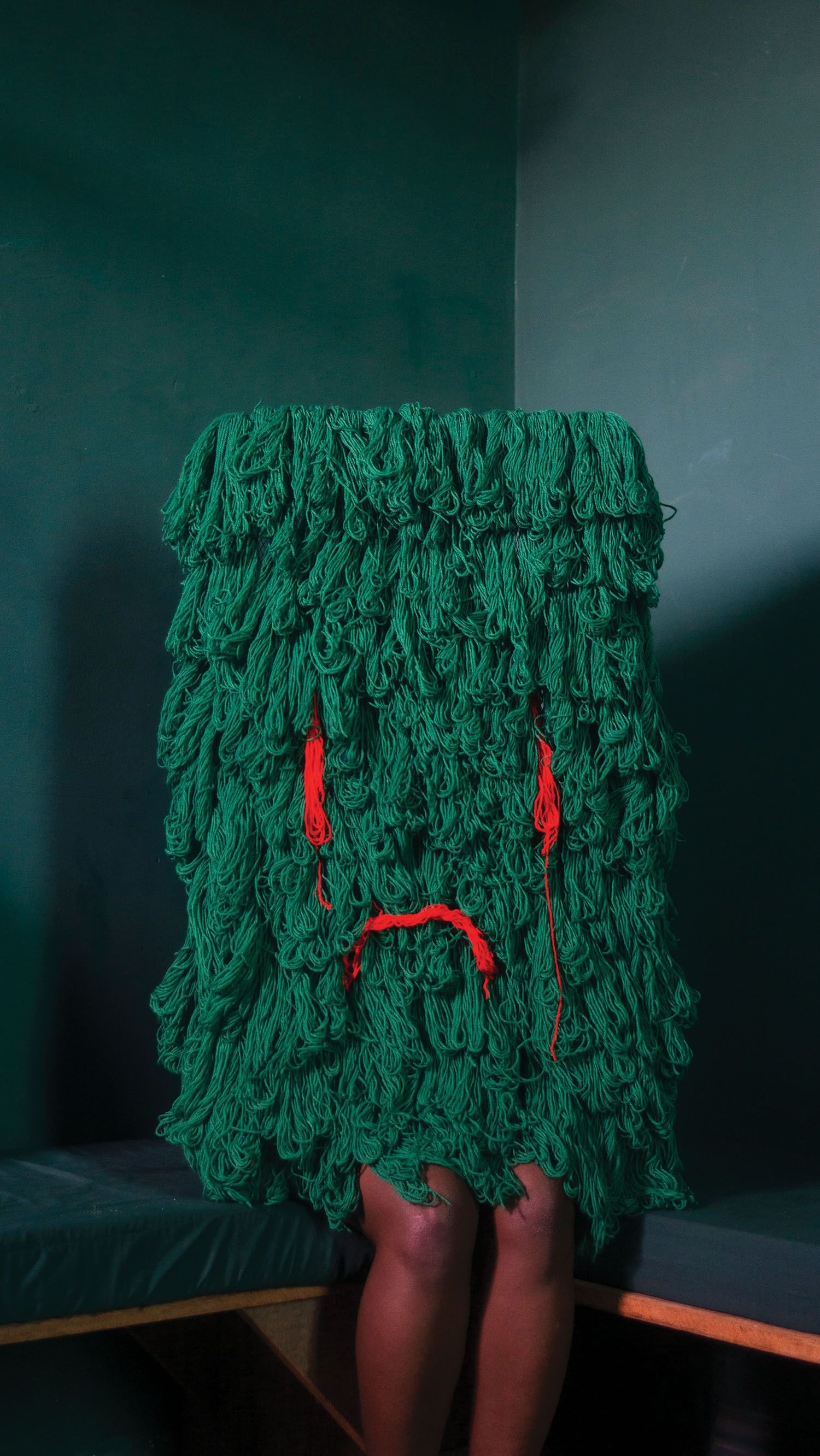
Ogisi’s latest body of textile artwork, ‘Forest of Humanity’, was part of ‘(Un)common Threads’, the debut show presented by creative platform DesignEast, which advocates for artists and designers in the Global South to help them thrive in a global market. Focusing on textiles as an underexposed medium, the show explored its interactions with architecture, art, fashion, interiors, sound and technology through the use of unconventional materials, found fibres, organic matter and traditional woven threads.
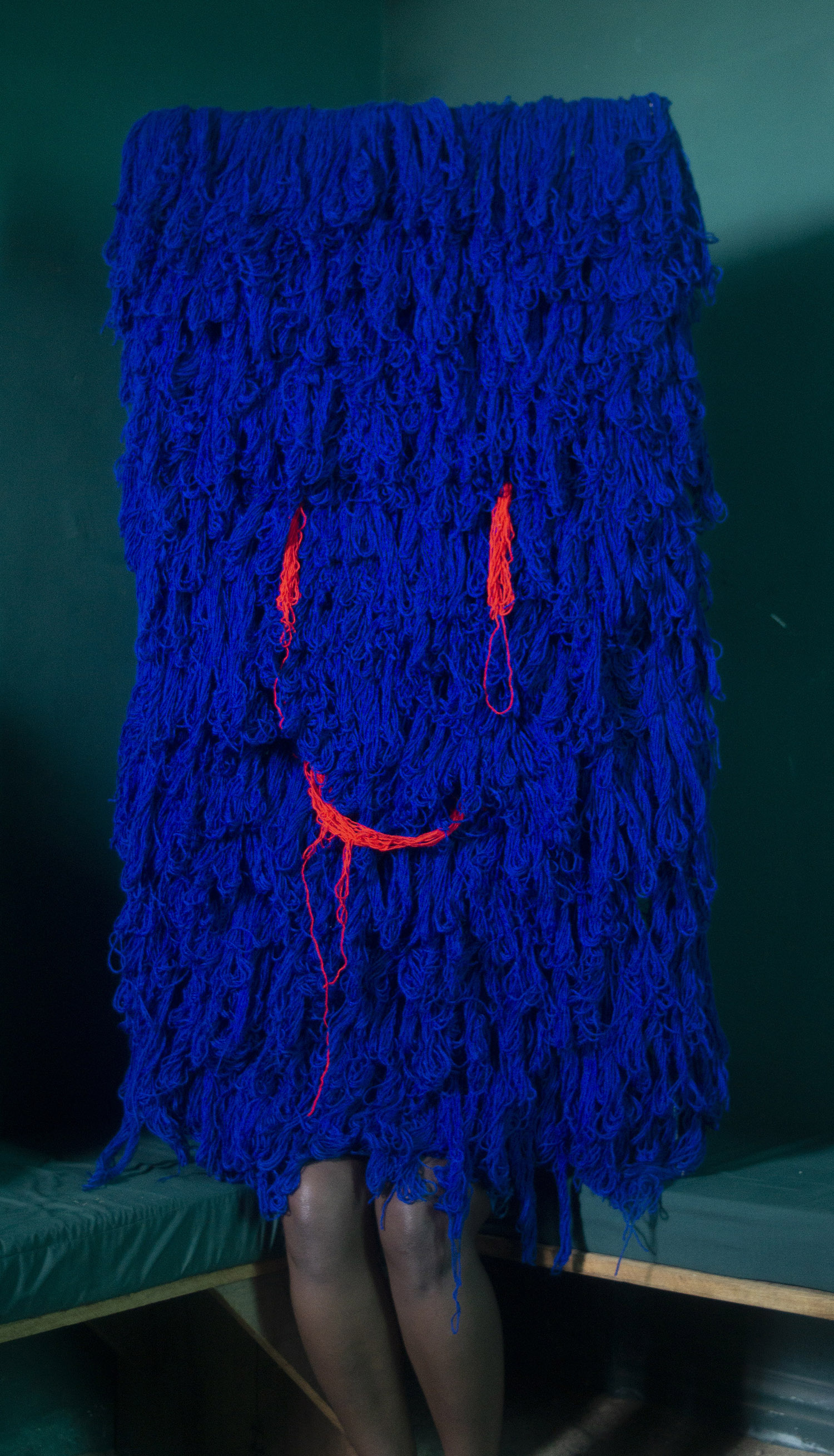
“We wanted to challenge our artists to push the parameters of what is possible and what we understand about textiles and weaving, to experiment with space, dimension, beauty and materiality – to create something truly unexpected,” says Rue Kothari, founder and creative director of DesignEast. With ‘Forest of Humanity’, Ogisi seeks to construct and convey new worlds of human imagination by surveying the complexity and ambiguity of the human mind and emotions via the channels of facial expressions. Each piece is created using a crochet picking technique, utilising a plastic fishing net base as well as wool sourced from Kano, Nigeria’s mercantile and artisanal city. The technique is performed tediously by hand to express the power and the importance of preserving handmade processes. “My ancestral pictorial weaving emerges from a desire for threads and yarn to be articulate again and find a form for themselves to no other end than their own orchestration; not to be worn or used, [but] only to be looked at and respected,” Ogisi explains.
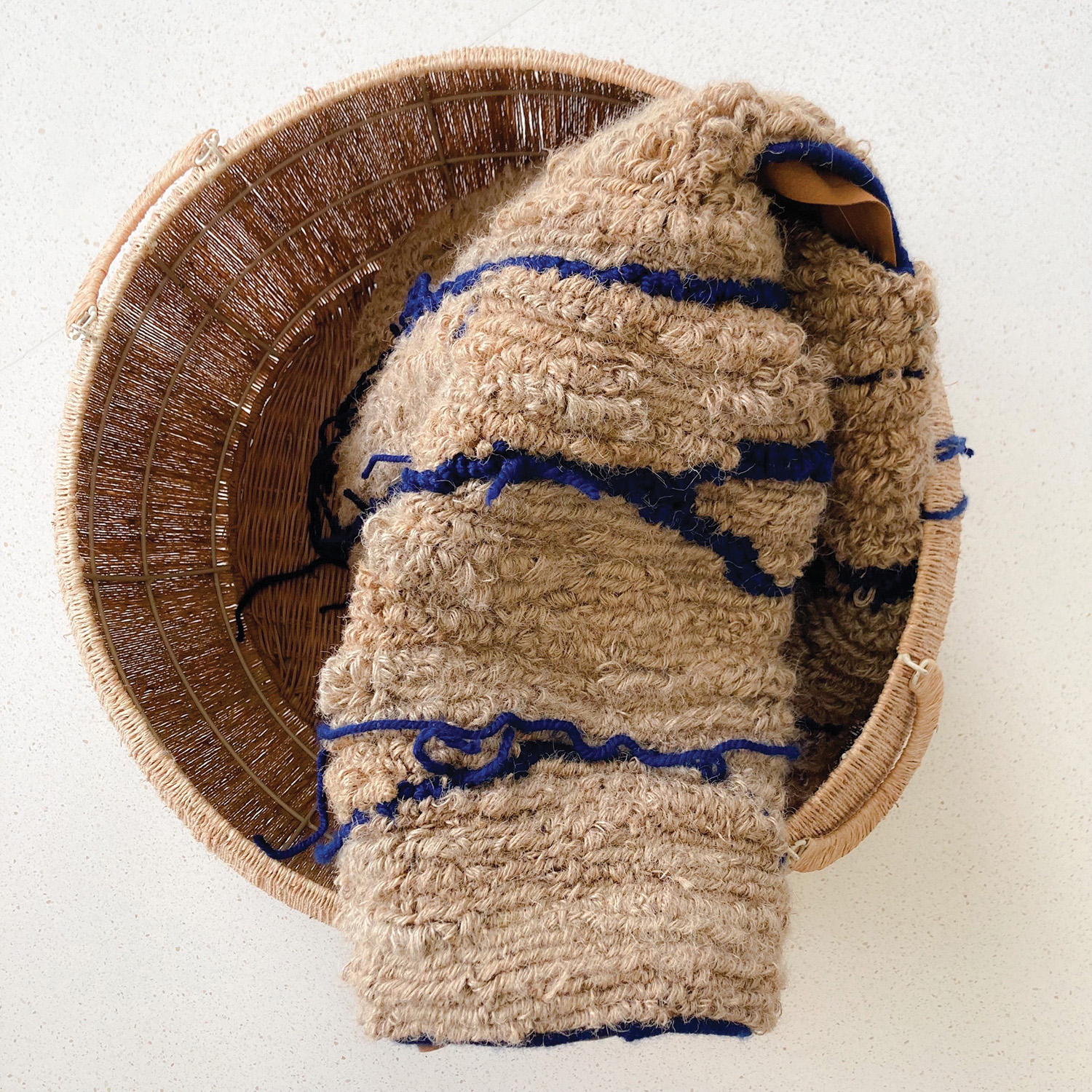
Overall, the show consisted of 17 installations and works by 19 different creatives from across the Global South, including the UAE, Saudi Arabia, Qatar, Egypt Lebanon, Trinidad, Thailand, Pakistan and Sri Lanka.
Beirut-based sisters and trained architects Celine and Tatiana Stephan work on tackling notions of sustainability and the circular economy with the aim of reframing crises into opportunity while spreading awareness about the depletion of natural resources, as well as the production and consumption of goods.

The pair presented ‘Future of Materials’, an installation representing a ‘table ronde’ consisting of benches, side tables and lighting fixtures made out of a blend of materials including upcycled upholstery, fishermen’s waste and textile waste, and natural elements such as the shredded hair of their dog – all sourced in Lebanon. “The goal is to spread awareness about sustainability and [to] use waste for the welfare of humanity,” the duo says.
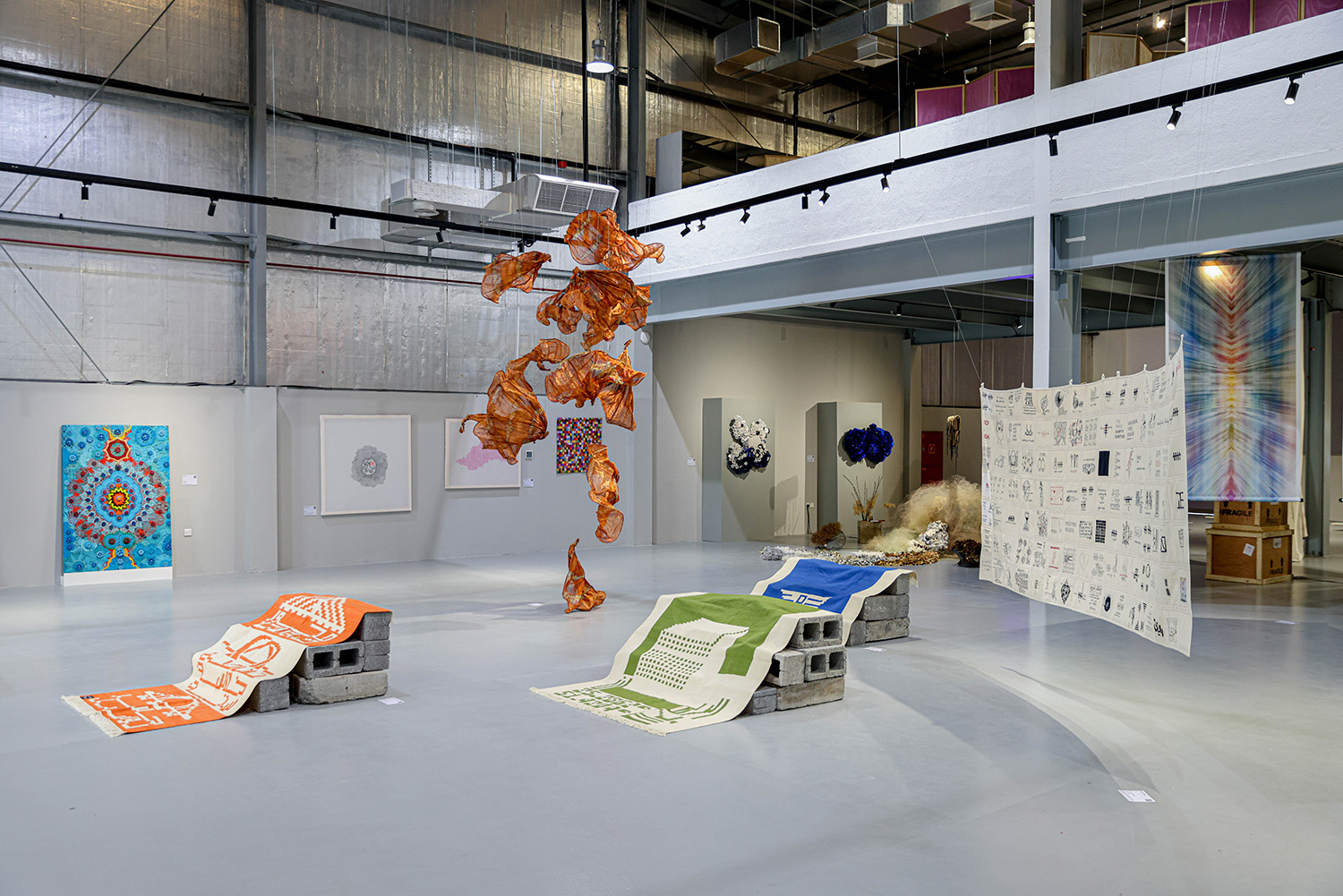
Hailing from Qatar, interdisciplinary designer and educator Maryam Yousef Al Homaid spent her childhood at the studio of her father – acclaimed artist Yousef Ahmed. Having always been surrounded by a family of makers (including her grandparents), Al Homaid has been inspired by the hands-on art-making process, which she now expresses through a combination of craft and technology.
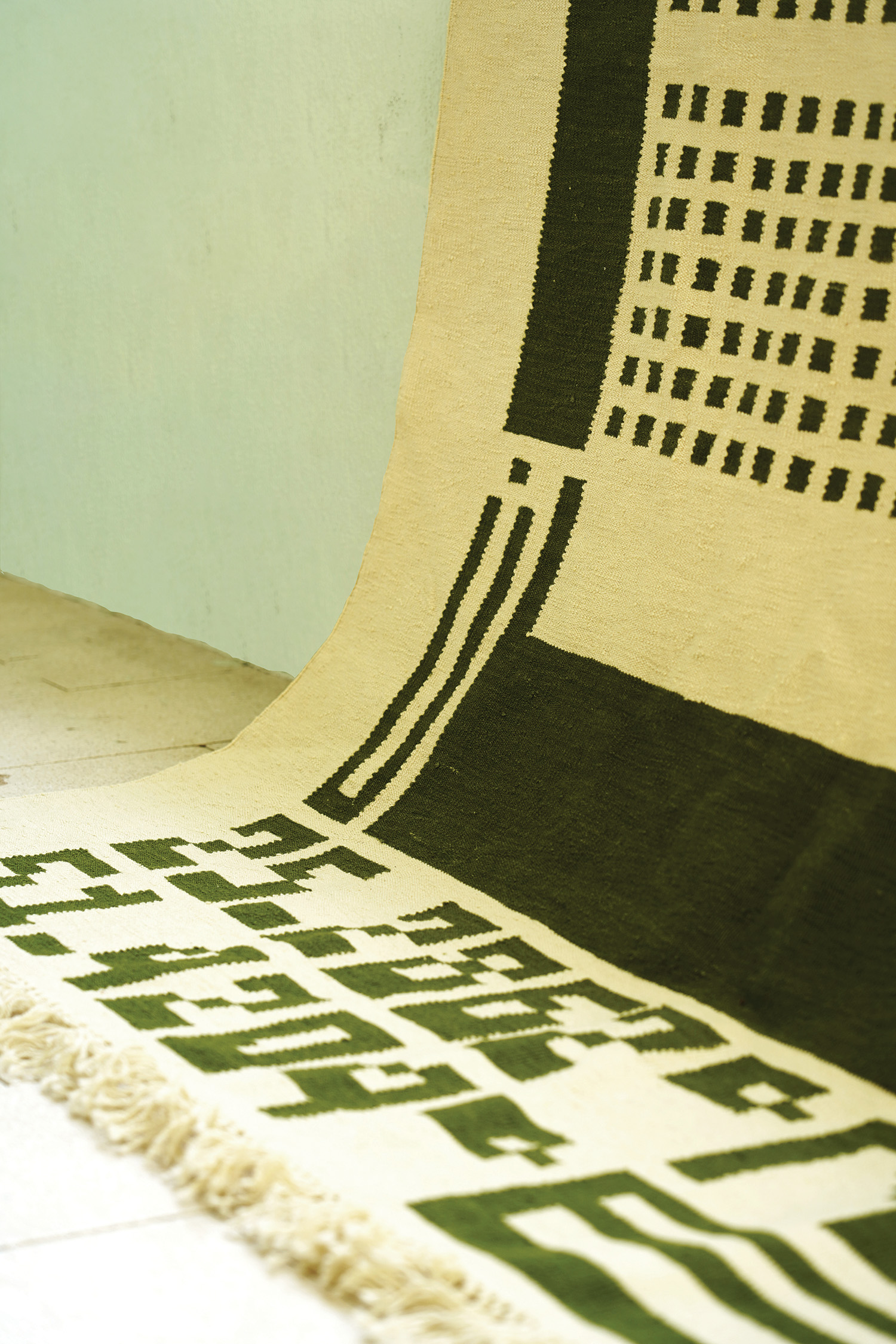
Her recent body of work draws inspiration from her experiences as a millennial in Qatar, where she has observed significant economic and social changes. Instead of taking a nostalgic approach, Al Homaid celebrates the evolution of these memories, designing her artworks digitally yet still paying complement to traditional carpet-making techniques by drawing inspiration from the craft’s graphic elements.
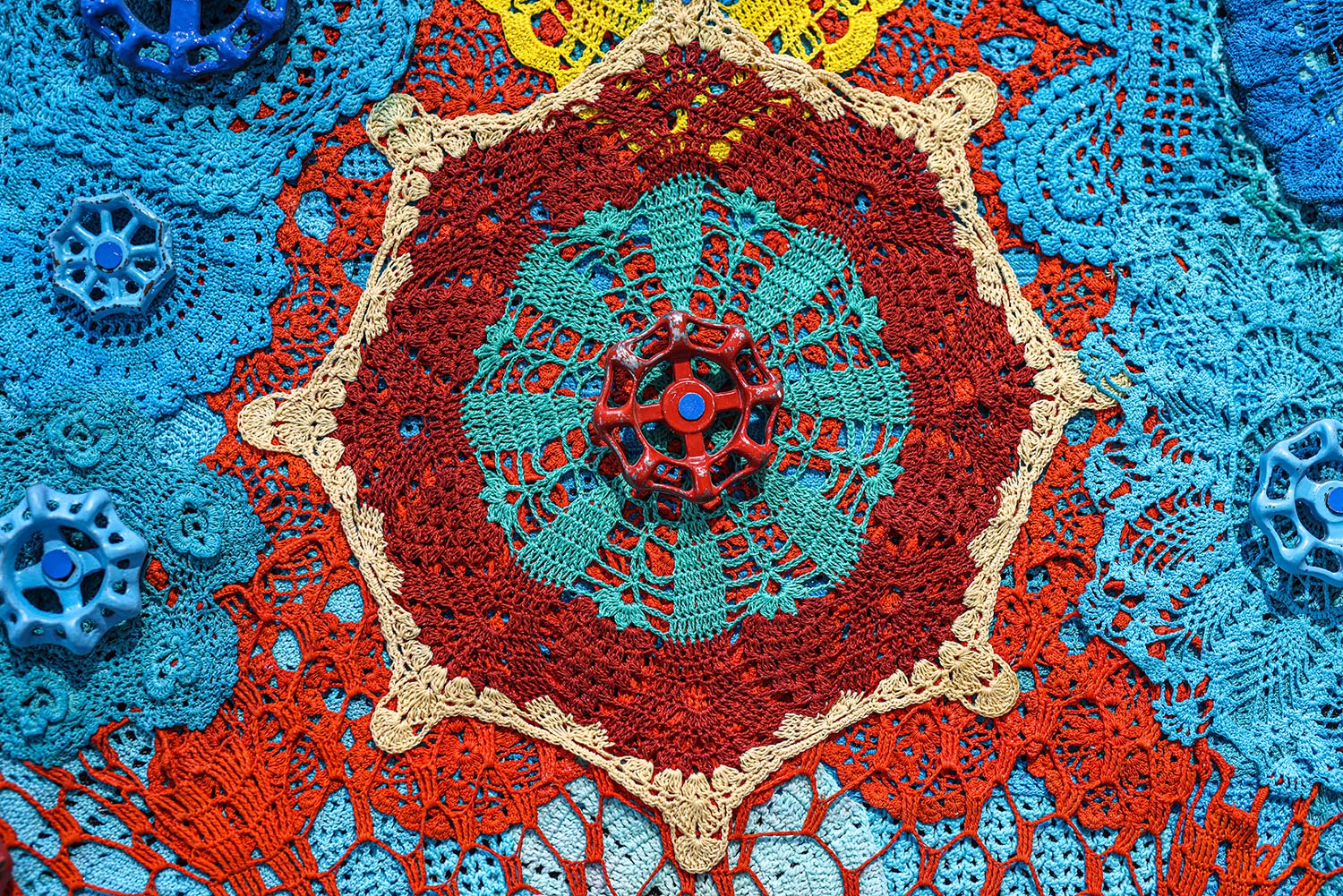
Her pieces for the exhibition included handwoven visual scrolls depicting the most recent monumental highways built in Doha, whose names are presented using a typeface that was specifically designed to embrace the theme, size and format of the artwork.
Also participating in the show, YOCA (‘Young Collective Artists’) believe that it is necessary to have new voices in the field of design. “The international world is ready for a new story; a new vision, a creativity that sparks their curiosity to learn how other cultures create and define…design,” the team asserts. Established in Pakistan in 2006 – and since setting new benchmarks for high-quality hand-crafted furniture – the collective includes Zayd Bilgrami, Ahsan Najmi and Sarah Najmi Bilgrami, who all trained at the Rhode Island School of Design in the United States.
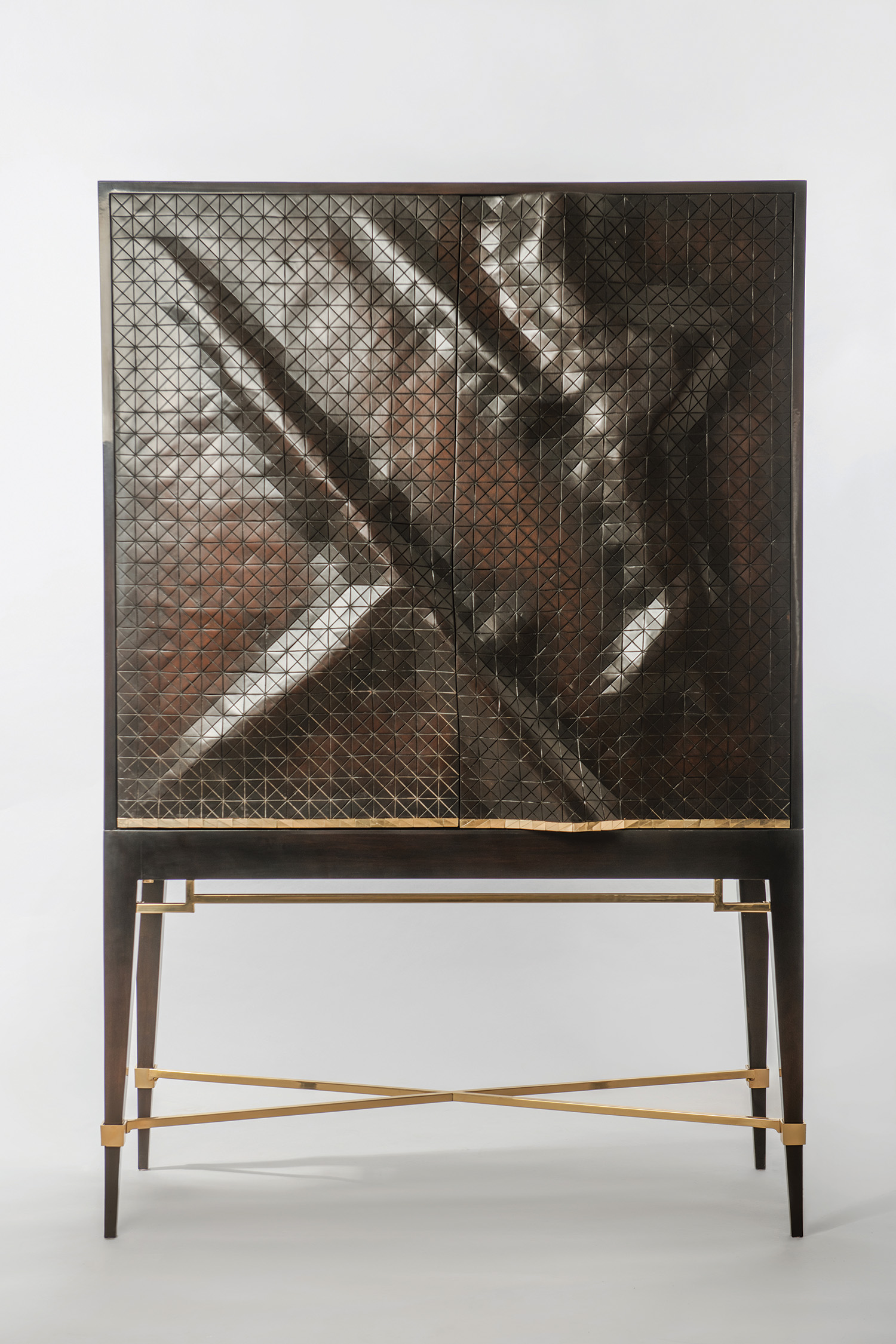
Featuring wood, brass, leather and silk, YOCA presented the ‘Kirogami’ cabinet, which was inspired by Ralli – a traditional weaving technique used by women in the rural areas of Pakistan to make quilt out of leftover cloth pieces. Here, the designers used chips of rosewood waste to patch the fabric together, which was then stitched together with brass strips.
“These chips of rosewood would be considered waste and end up in a landfill,” the team explains. “But the prudent approach of the village women to clothe their families allowed us to innovate, as it was a well-worked philosophy to recreate, reinvent, reuse and recycle”.
The Latest
The Edge of Calm
This home in Dubai Hills Estate balances sculptural minimalism with everyday ease
In conversation with Karine Obegi and Mauro Nastri
We caught up with Karine Obegi, CEO of OBEGI Home and Mauro Nastri, Global Export Manager of Italian brand Porada, at their collaborative stand in Downtown Design.
An interview with Huda Lighting at Downtown Design
During Downtown Design, we interviewed the team at Huda Lighting in addition to designers Tom Dixon and Lee Broom.
Downtown Design Returns to Riyadh in 2026
The fair will run its second edition at JAX District
Design Dialogues with KOHLER
We discussed the concept of 'Sustainable Futures' with Inge Moore of Muza Lab and Rakan Jandali at KCA International.
Design Dialogues with Ideal Standard x Villeroy & Boch
During Dubai Design Week 2025, identity held a panel at the Ideal Standard x Villeroy & Boch showroom in City Walk, on shaping experiences for hospitality.
A Touch of Luxury
Here’s how you can bring both sophistication and style to every room
Outdoor Living, Redefined
Messara Living and Vincent Sheppard Unveil “Outdoor at Its Best 2026”
NOMAD Opens Its Doors in Abu Dhabi’s Iconic Terminal 1
A modernist landmark is reimagined as a global stage for collectible design, contemporary art, and cultural dialogue.
In photos: Winners at the identity Design Awards 2025
Presenting the winners of 2025 identity Design Awards.
Identity Design Awards 2025 – Winner’s List
Here are the winners of the identity design awards 2025
Hogg’s Hollow
Set along the bend of a quiet river and sheltered within a mature, tree-lined enclave of Toronto, this riverside residence offers a dialogue between structure and softness, restraint and warmth



